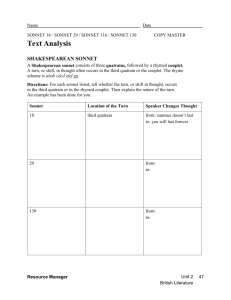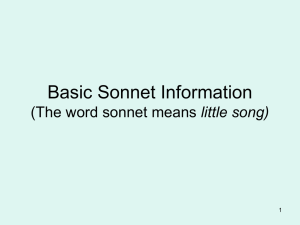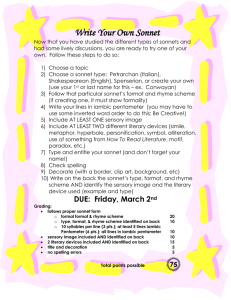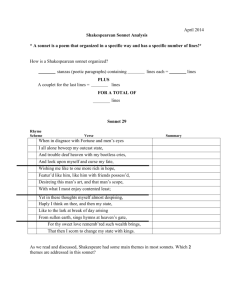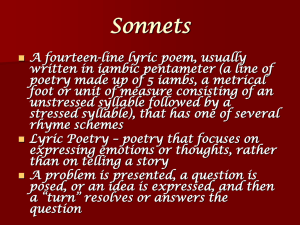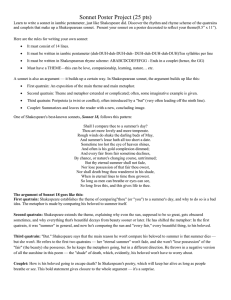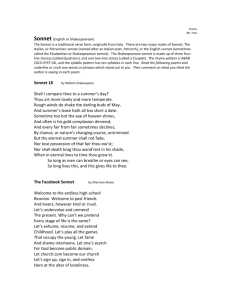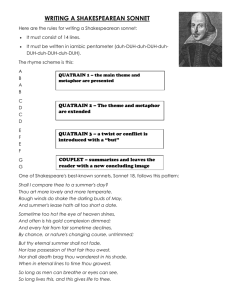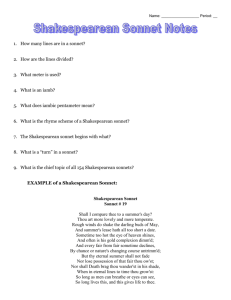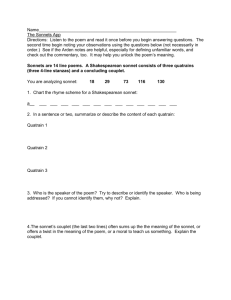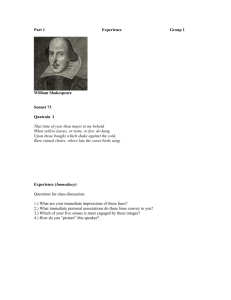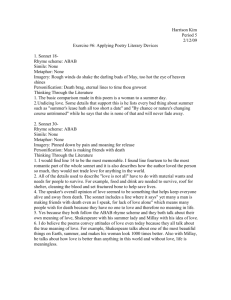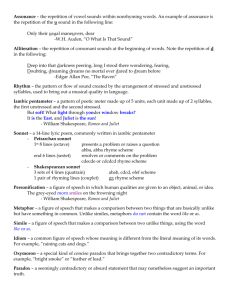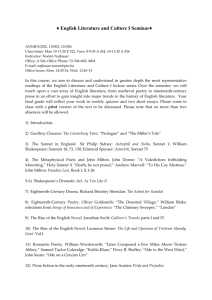Writing a Sonnet from Dummies
advertisement
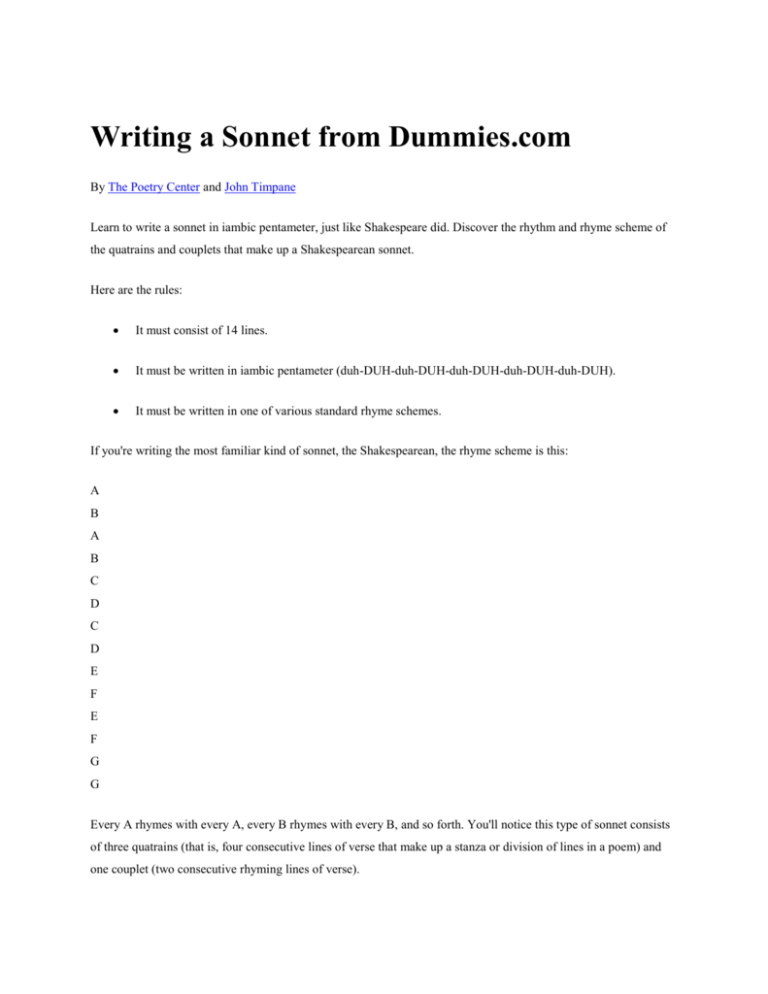
Writing a Sonnet from Dummies.com By The Poetry Center and John Timpane Learn to write a sonnet in iambic pentameter, just like Shakespeare did. Discover the rhythm and rhyme scheme of the quatrains and couplets that make up a Shakespearean sonnet. Here are the rules: It must consist of 14 lines. It must be written in iambic pentameter (duh-DUH-duh-DUH-duh-DUH-duh-DUH-duh-DUH). It must be written in one of various standard rhyme schemes. If you're writing the most familiar kind of sonnet, the Shakespearean, the rhyme scheme is this: A B A B C D C D E F E F G G Every A rhymes with every A, every B rhymes with every B, and so forth. You'll notice this type of sonnet consists of three quatrains (that is, four consecutive lines of verse that make up a stanza or division of lines in a poem) and one couplet (two consecutive rhyming lines of verse). Ah, but there's more to a sonnet than just the structure of it. A sonnet is also an argument — it builds up a certain way. And how it builds up is related to its metaphors and how it moves from one metaphor to the next. In a Shakespearean sonnet, the argument builds up like this: First quatrain: An exposition of the main theme and main metaphor. Second quatrain: Theme and metaphor extended or complicated; often, some imaginative example is given. Third quatrain: Peripeteia (a twist or conflict), often introduced by a "but" (very often leading off the ninth line). Couplet: Summarizes and leaves the reader with a new, concluding image. One of Shakespeare's best-known sonnets, Sonnet 18, follows this pattern: Shall I compare thee to a summer's day? Thou art more lovely and more temperate. Rough winds do shake the darling buds of May, And summer's lease hath all too short a date. Sometime too hot the eye of heaven shines, And often is his gold complexion dimmed; And every fair from fair sometime declines, By chance, or nature's changing course, untrimmed; But thy eternal summer shall not fade, Nor lose possession of that fair thou owest, Nor shall death brag thou wanderest in his shade, When in eternal lines to time thou growest. So long as men can breathe or eyes can see, So long lives this, and this gives life to thee. Read more: http://www.dummies.com/how-to/content/writing-a-sonnet.html#ixzz1LPfAHu6g



